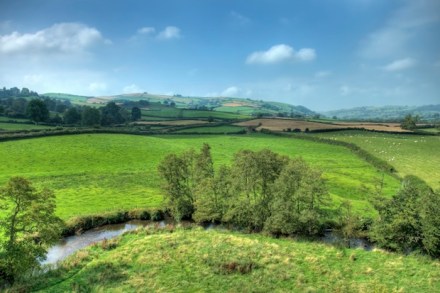How to survive the rain-sodden Welsh Marches
The Welsh Marches, gloriously unvisited amid their wooded hills and swift-flowing streams, have remained mysteriously off-limits to the sort of novelist eager for territorial rights to a particular landscape or locality. Apart from Bruce Chatwin’s On the Black Hill and Mary Webb’s torrid 1920s sagas of heartache and claustrophobia in field and farmhouse, fiction has

















